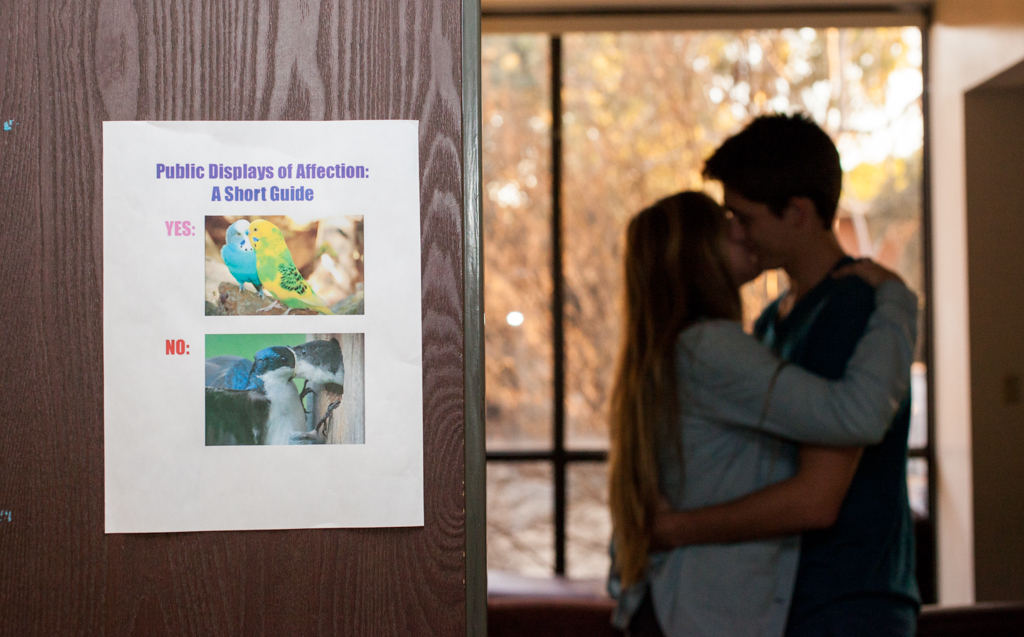
Students at Biola are caught between strict dorm open hours and a natural desire to connect with one another. Couples seeking time together on campus end up in co-ed community gathering spaces.
“We as humans are naturally attracted to one another,” said Christopher Grace, professor of psychology and vice president of student development. “We find pleasure in connecting and hanging out … it’s God’s design. For some people, it’s a look, a touch, a kiss and they’re connected. We lose our sensitivity based on where we’re at, and God puts us in communities to protect us.”
Making Connections
Students around campus can be seen making these connections onlookers deem public displays of affection, or more commonly “PDA.”
“I’m used to seeing the PDA,” said freshman nursing major Emily Justiniano. “I live in Sigma [Hall], which is apparently known as the couples dorm.”
According to Grace, physical involvement leads people in relationships to believe they are more compatible than they really are by masking emotional or intimate connections that aren’t there.
Justiniano explained the co-ed lounges in Sigma are well-occupied in the evenings, especially on weekends.
“There’s three co-ed lounges open 24/7 and lots of couches, lots of space and lots of couples,” she said.
Bryan Ingvaldson, a philosophy graduate student, said he studies in the Student Union Building nearly every day and sees couples engaging in PDA there often.
“It doesn’t make me too uncomfortable if they’re just cuddling,” he said.
Public intimacy affects social sensitivity
It is important that we maintain a social sensitivity to public intimacy, explained professor of psychology Keith Edwards. In a social space, too much intimacy makes others uncomfortable. We as Christians are responsible to each other for the impact our behavior has on others, Edwards said.
“We’re a peculiar people,” Edwards said of the Biola community. We stand out against today’s social norms because we uphold the sanctity of marriage, but we need each other’s help to do this, he explained.
All students agree to follow Biola’s community standards. Besides open hours in the housing rules that restrict time spent in dorms of the opposite sex, the community standards offer these relational boundaries:
Community Standards
“We at Biola recognize that Scripture condemns sins of the heart, such as covetousness, selfishness, ambition, envy, greed, lust and pride. By their very nature, these sins are more difficult to discern, but because they lie at the heart of relationships, they are of central concern to the Biola community,” the standards read.
There are plenty of signs hanging around the lounges in Sigma advertising the rules.
“We had a legitimate bullet point list before, like, you can’t do this, no horizontal cuddling, no under-blanket cuddling,” Justiniano said. “No one really listened to it.”
Grace illustrated why it is important to have accountability in our relationships as Christians: a fire contained within a fireplace is warm and inviting. When burning outside of its parameters, this same fire spreads and causes incredible damage.
“It’s the community that’s going to have to uphold what we’ve all agreed to do,” Grace said. “At the end of the day, we all struggle.”







